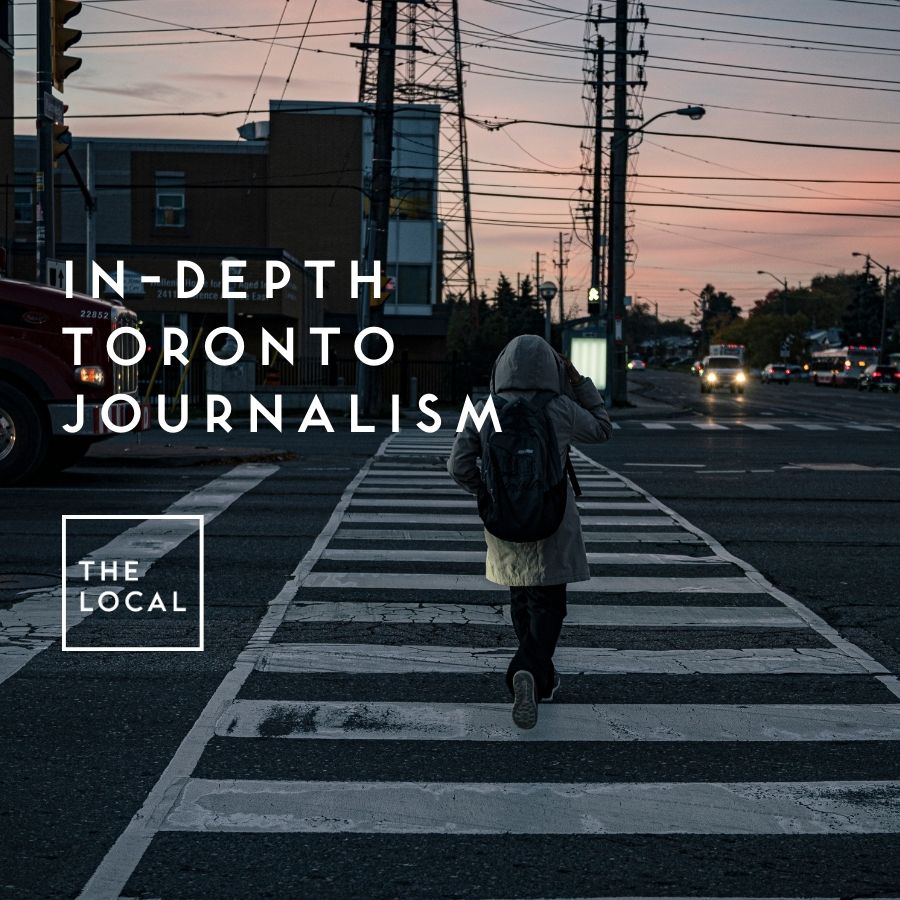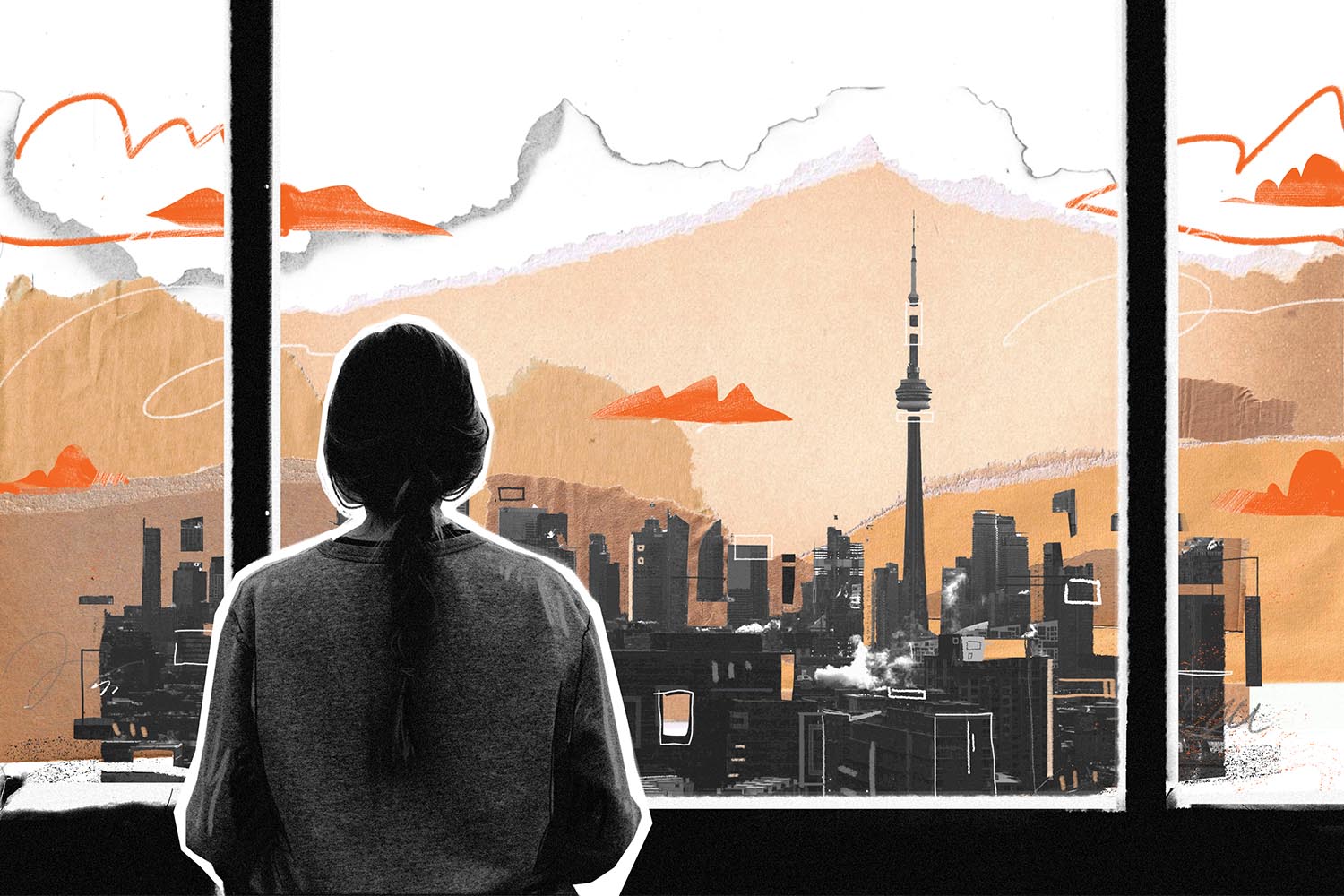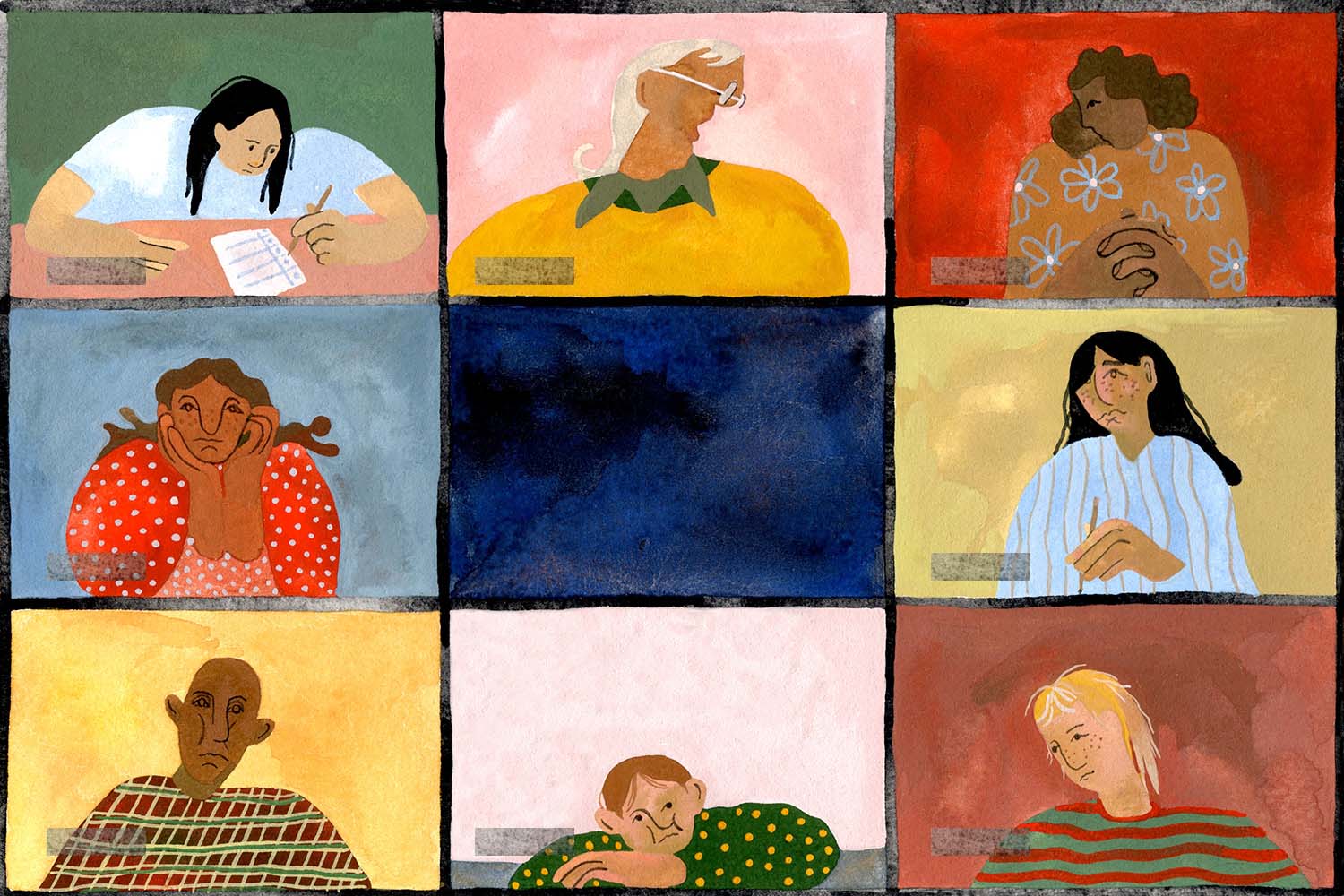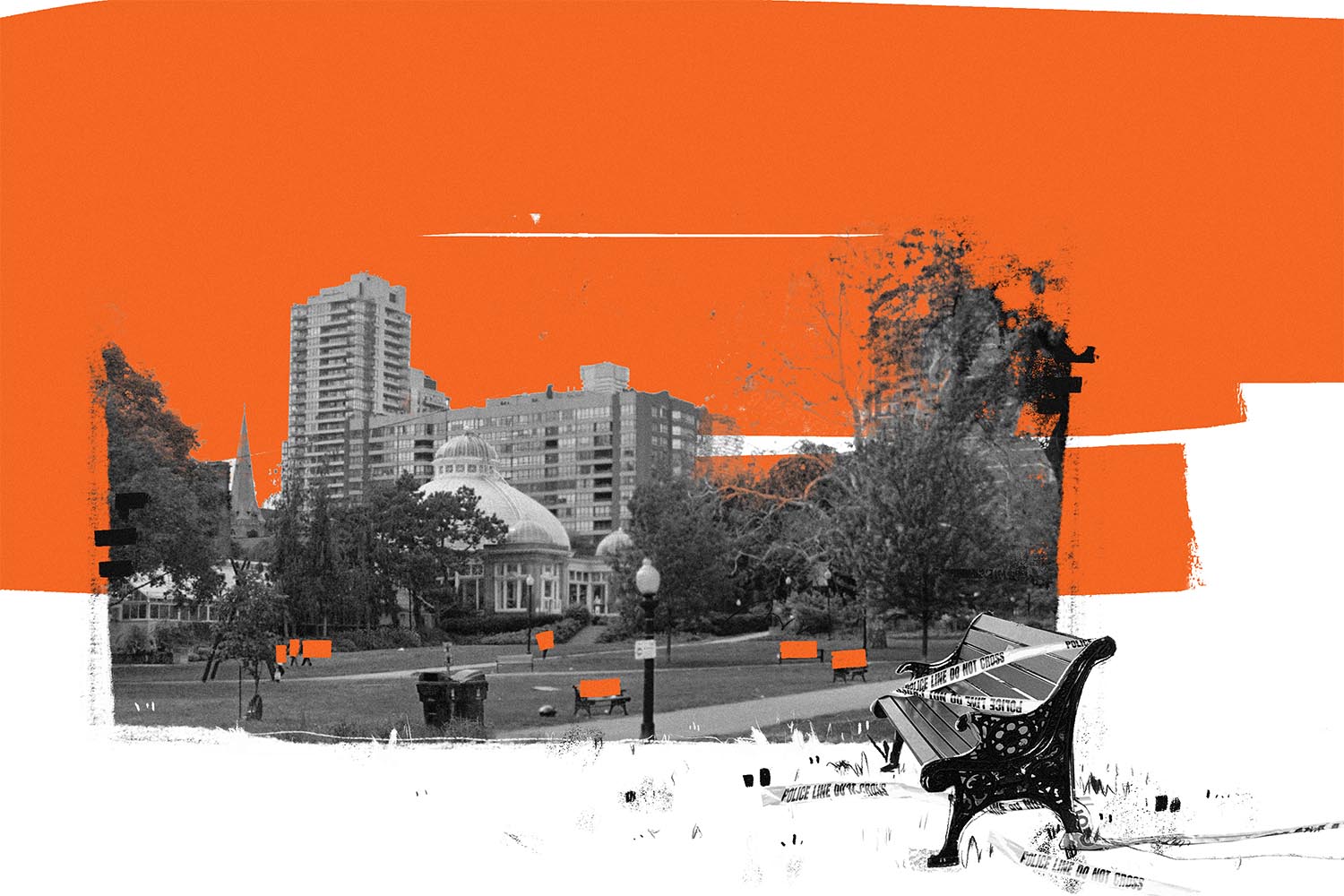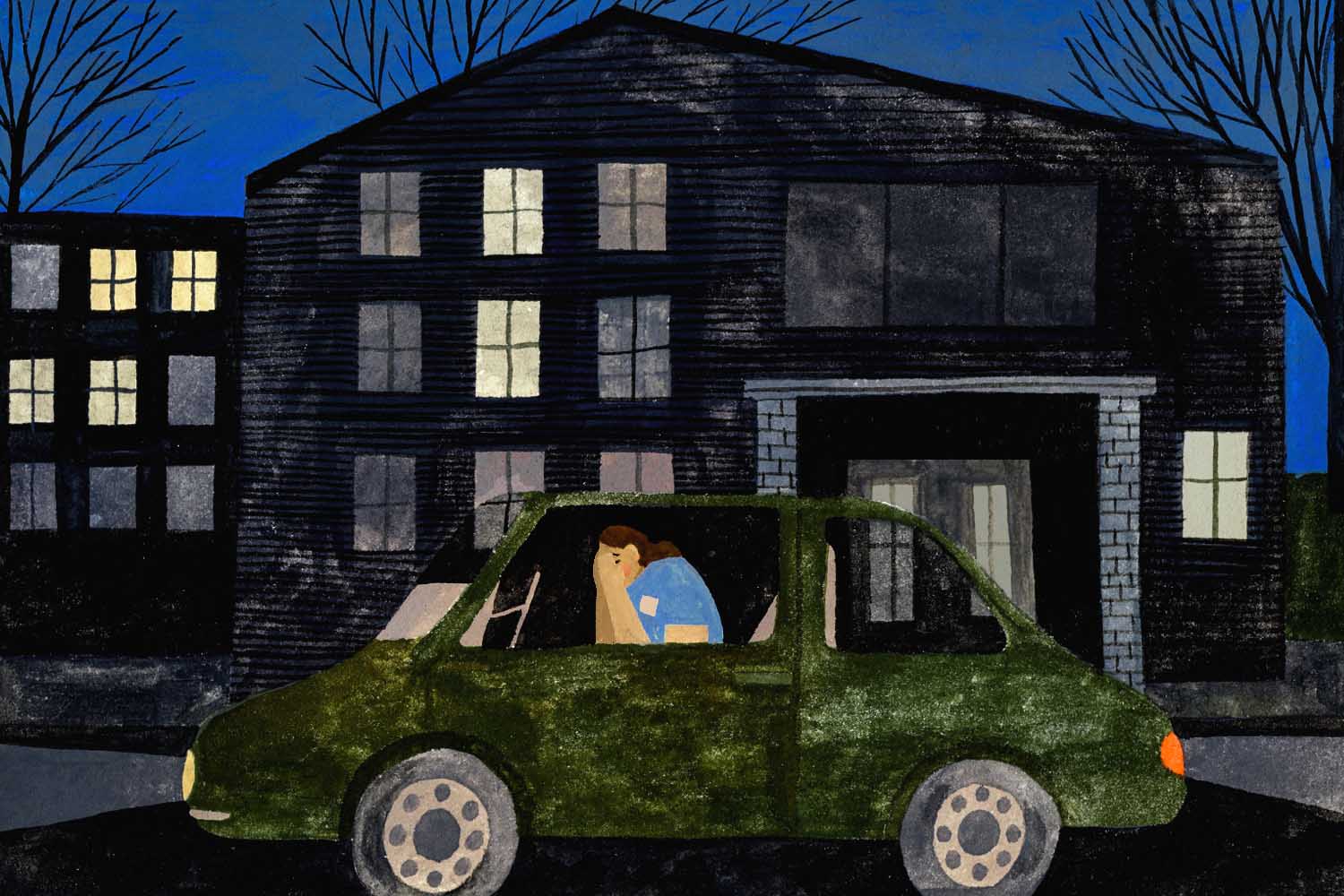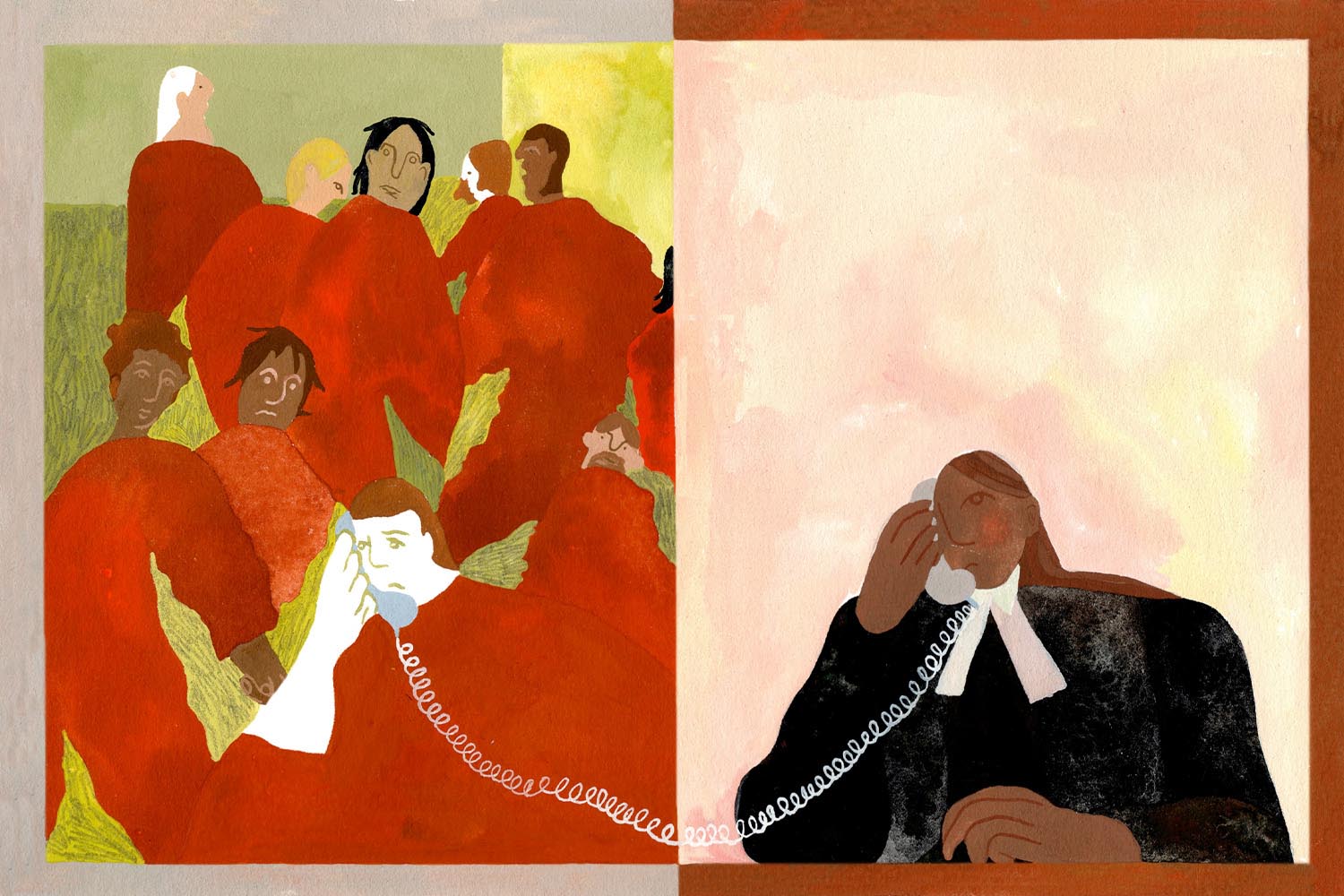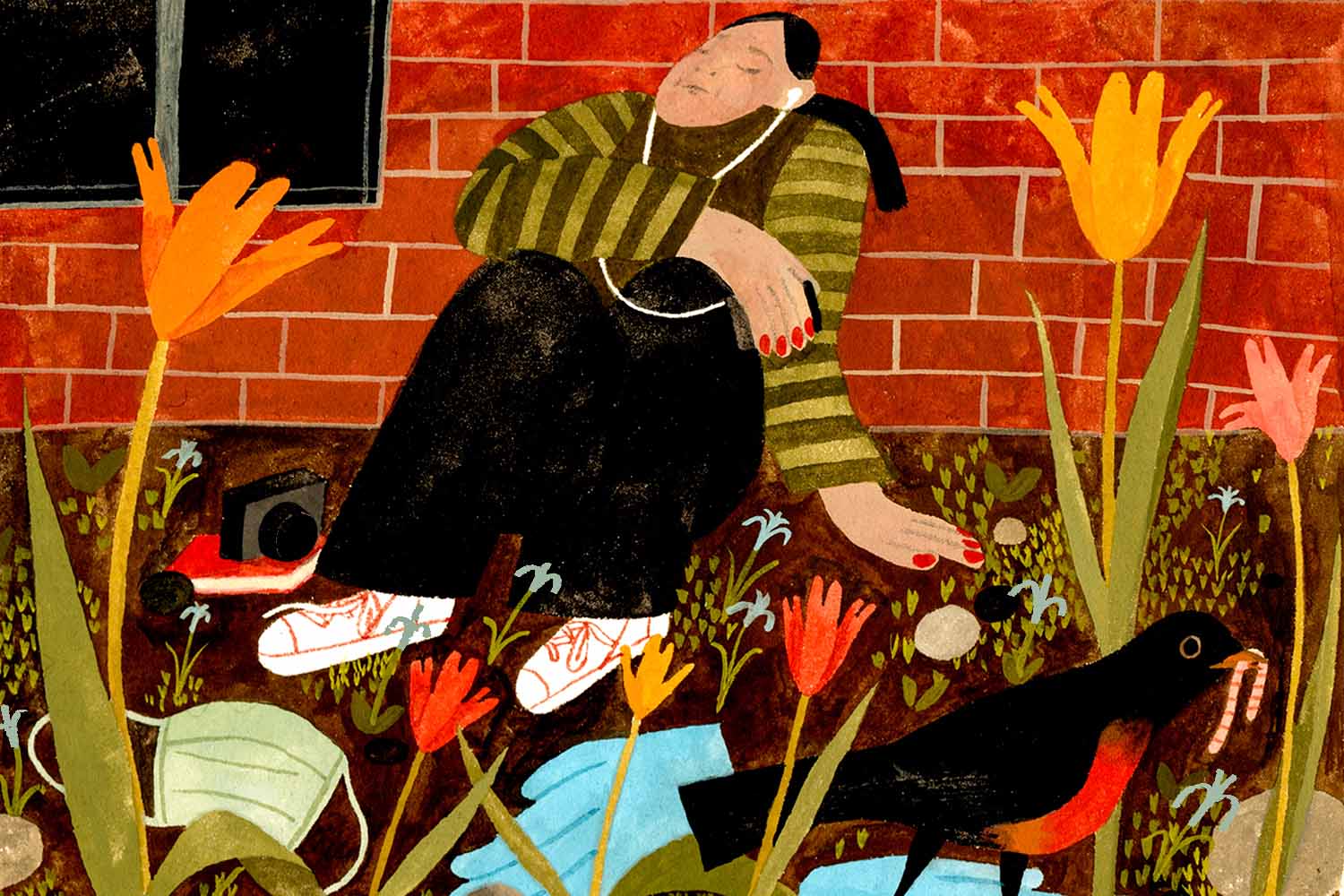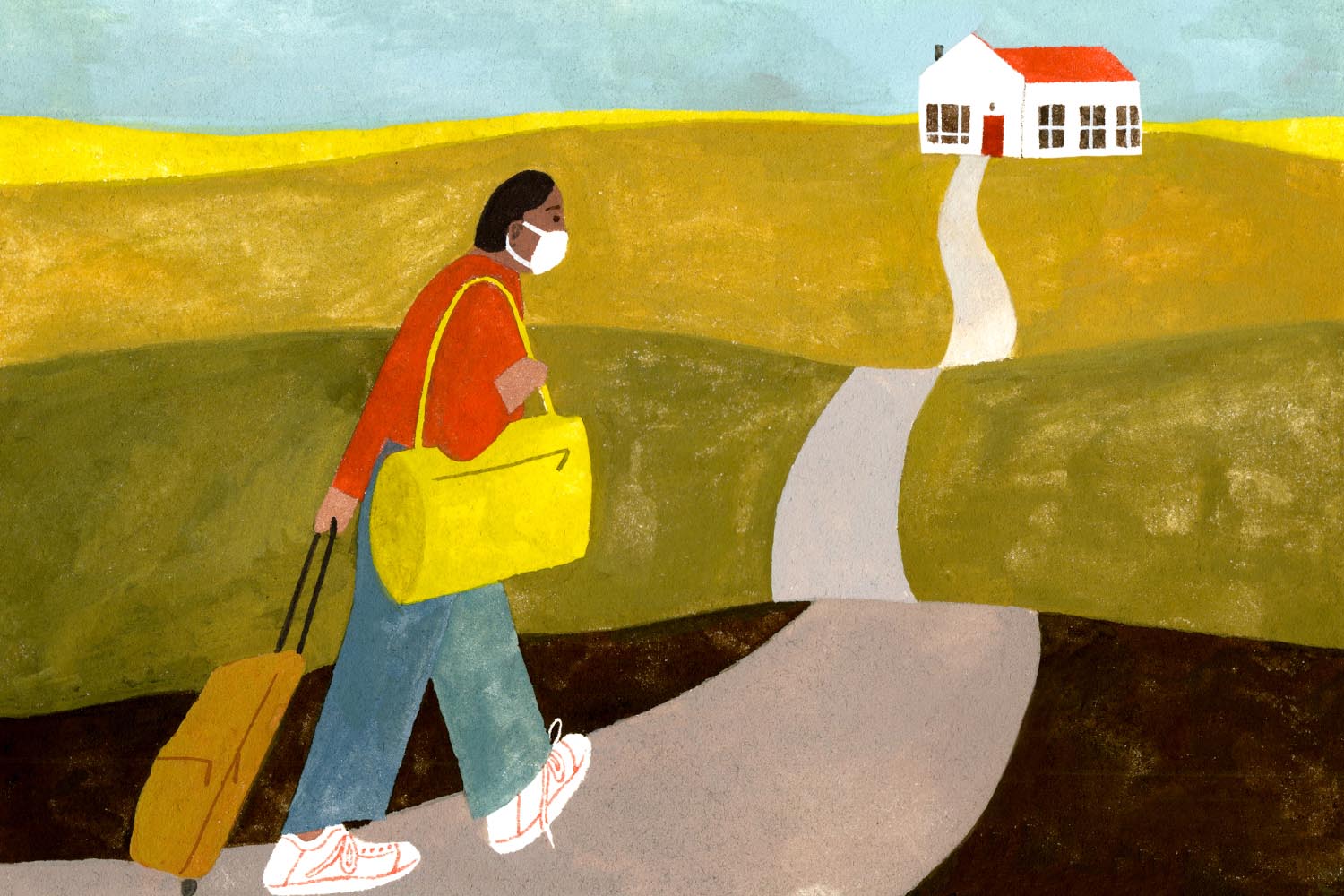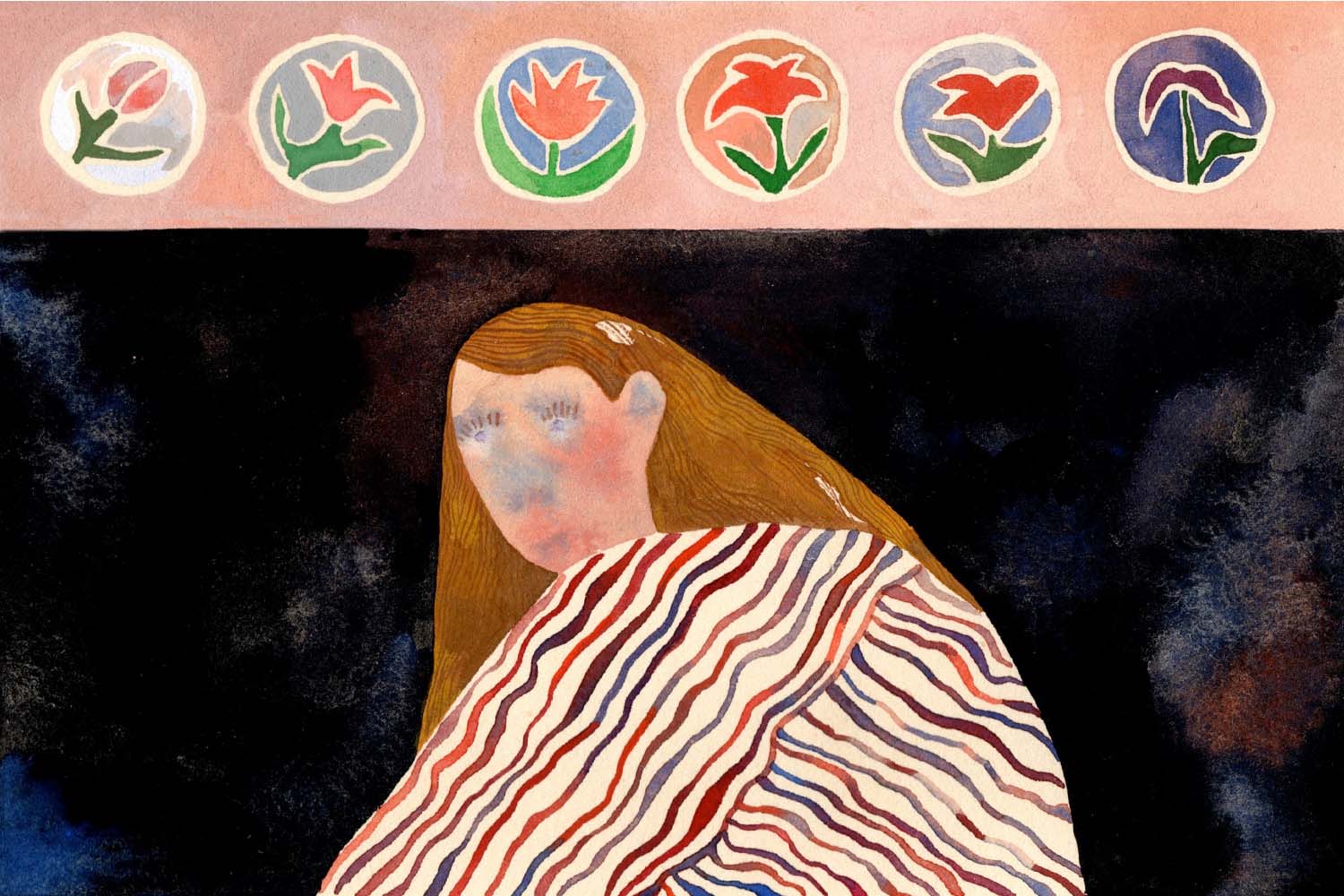
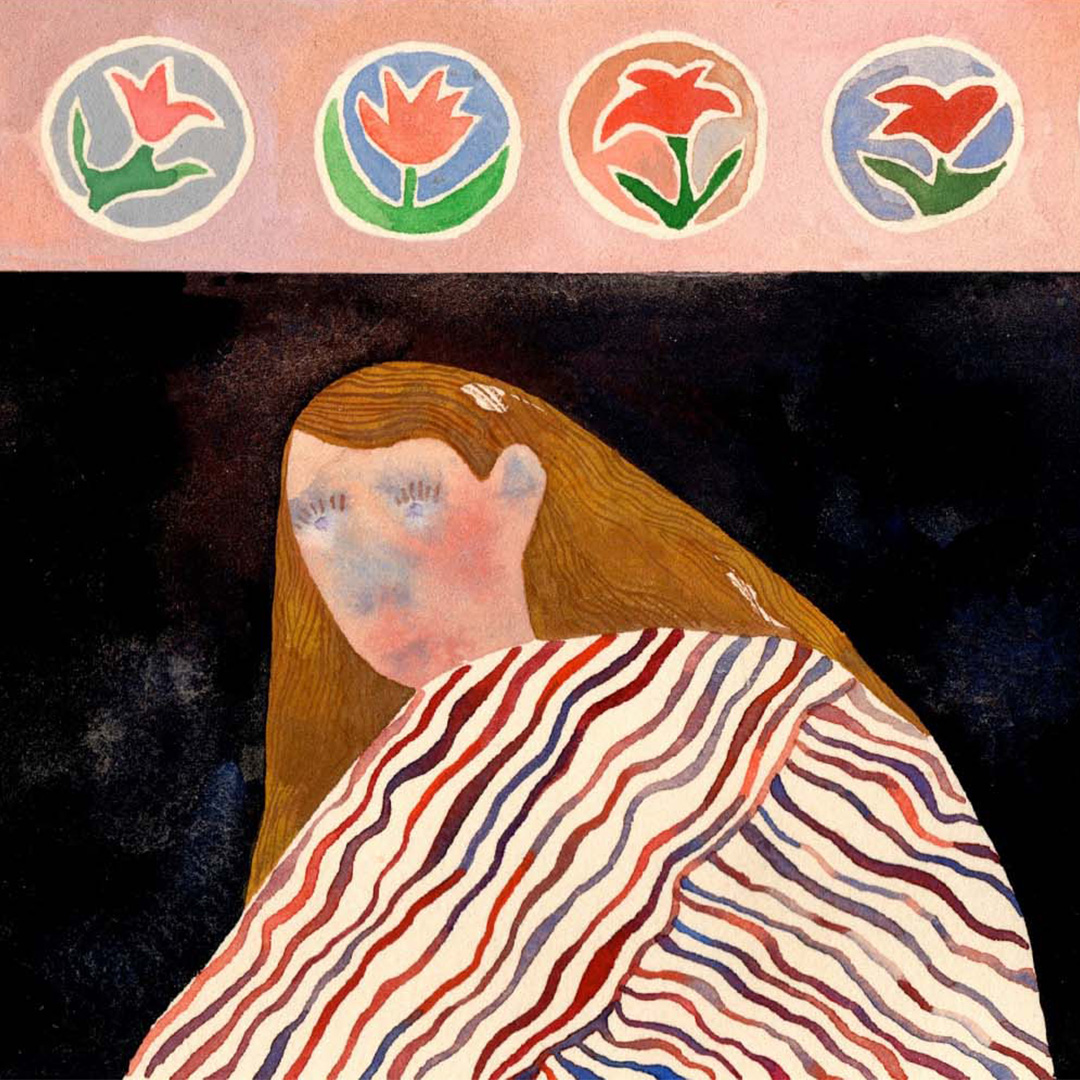
Saturdays are inside days. I need to ride my bike roughly every 24 hours or my right eye starts twitching, but it’s tougher on the weekends. My partner, a two-time transplant recipient, is pretty seriously immunocompromised, so I have to be strategic about when I leave the house and where I go.
Our neighbourhood is still teetering on the brink of full gentrification, a 60/40 split between people who have lived in the same houses their whole lives and people who buy those houses, scoop their insides out, and fill them with bright lights and children. These homes are easy to spot: they have thicker fences and windows that look properly sealed, numbers in that one thin silver font and exteriors all painted in the same rich, lifeless shade of blue. Their residents all started working from home when things started to get serious, and on weekdays you can set your watch to the rhythms of their lives. They come out in waves at 8:00 a.m., noon, and 5:30, jogging aggressively or walking their beautiful dogs and their beautiful children. But on weekends they stay out all day, lifting their faces to the sun, so I usually don’t go outside until it gets dark.
I appreciate the reliability of my neighbours’ ebb and flow. I was laid off from my day job at a bookstore when the pandemic began, so this is how I get my good old fashioned linear time now: secondhand, through other people’s schedules. As a poet (the least employable kind of artist), my life has always been described by the tug-of-war between Job Time and Art Time. Pre-coronavirus, the structure of my day-to-day life was pleasantly, frustratingly chaotic; it was never possible to work and write and socialize and sleep inside the same day, but I tried, and that trying felt like life.
Now, a month or whatever into isolation, time melts into itself in an almost hallucinogenic rush I do not understand at all. I have writing work to do, but it does little to call the old structure of Job Time back into my life. The rules have completely dissolved. Every hour is a hundred years long, and each day is over before it’s begun. Each morning I wake up like the first scene in Groundhog Day, the recent past etch-a-sketched out of my mind. The week folds over and joins itself at odd angles. I never know what day it is, never.
Poetry is good for planting a flag in a Serious Moment, a beginning or an ending or a disaster that rearranges the structure of the world.
I’ve become kind of obsessed with asking everyone I can about their personal experience of the passage of time, which is suddenly a subject as basic as the weather. You can ask anybody how time feels right now to them and get a paragraph-long answer back. Every single human being is thinking about it constantly, feeling the tension between the way it works inside and outside their body on a daily basis, on a cellular level. Obviously everyone’s experiences are different—my day is nothing like the day of someone who is raising children or working in a factory or working in a restaurant or working in a hospital—but the one thing they all have in common is that they are different, strange, completely new.
At the beginning of March, right before everything started to fall apart, I spent a few days listening and relistening to this James Baldwin talk about “The Artist’s Struggle for Integrity.” He uses the words “artist” and “poet” interchangeably. At one point, he says that “art is here to prove, and to help one bear, the fact that all safety is an illusion. In this sense, all artists are divorced from, and even necessarily opposed to, any system whatever.” Now I wonder whether maybe I was subconsciously preparing myself for daily life, and the illusion of safety my schedule provided, to fall away.
My editor mentions that everyone seemed to be turning to poetry when the pandemic first hit. He says that it spooked him, seemed like a “deathbed move,” and he’s right. Poetry is good for planting a flag in a Serious Moment, a beginning or an ending or a disaster that rearranges the structure of the world, because poems are necessarily opposed to the version of time that says everything is seconds, hours, minutes, days. In moments of true joy or grief, that kind of time suspends itself, and you can see a completely different structure running under the surface of everything. Poems are a map into this world beneath the world, this time-free kind of time; they join you with an organizing principle that has nothing to do with minutes, hours, appointments, standardized anything. The kind of time they point to is lush and wild and frightening and infinite. To live our normal lives we have to corral its flow, section it off with a series of locks and channels that everyone moves through together.
But right now no one is living their normal life. Time is new for all of us, and everyone’s personal experience of it makes them a poet. I don’t know what to do with all this information. Maybe someday we will be able to organize it, use it to make sense of what’s going on in hindsight. But for now all I can do is ask others how it’s affecting them, notice how it feels to me.
At the end of the day, instead of a bike ride, I end up taking a walk with my partner. Neither of us have left the house in over 24 hours and we’re both starting to vibrate a little. It’s cold out, and it feels so good to breathe. We walk down the middle of the road. Most of the lights in most of the houses are off but a handful of people are still awake, watching TV. Everything outside is so silent and still. We try to pin down exactly what this quiet feels like: a film set? A small town? A desert? A teen boy appears a block ahead of us, walking his dog, and I can hear the tinny music leaking from his headphones. I laugh and hear the echo of my laugh roll up the street like thunder. I can hear the streetlights buzzing. Traffic thirty blocks away. A dream, I realize, obviously, is the answer. All of it feels like a dream.
